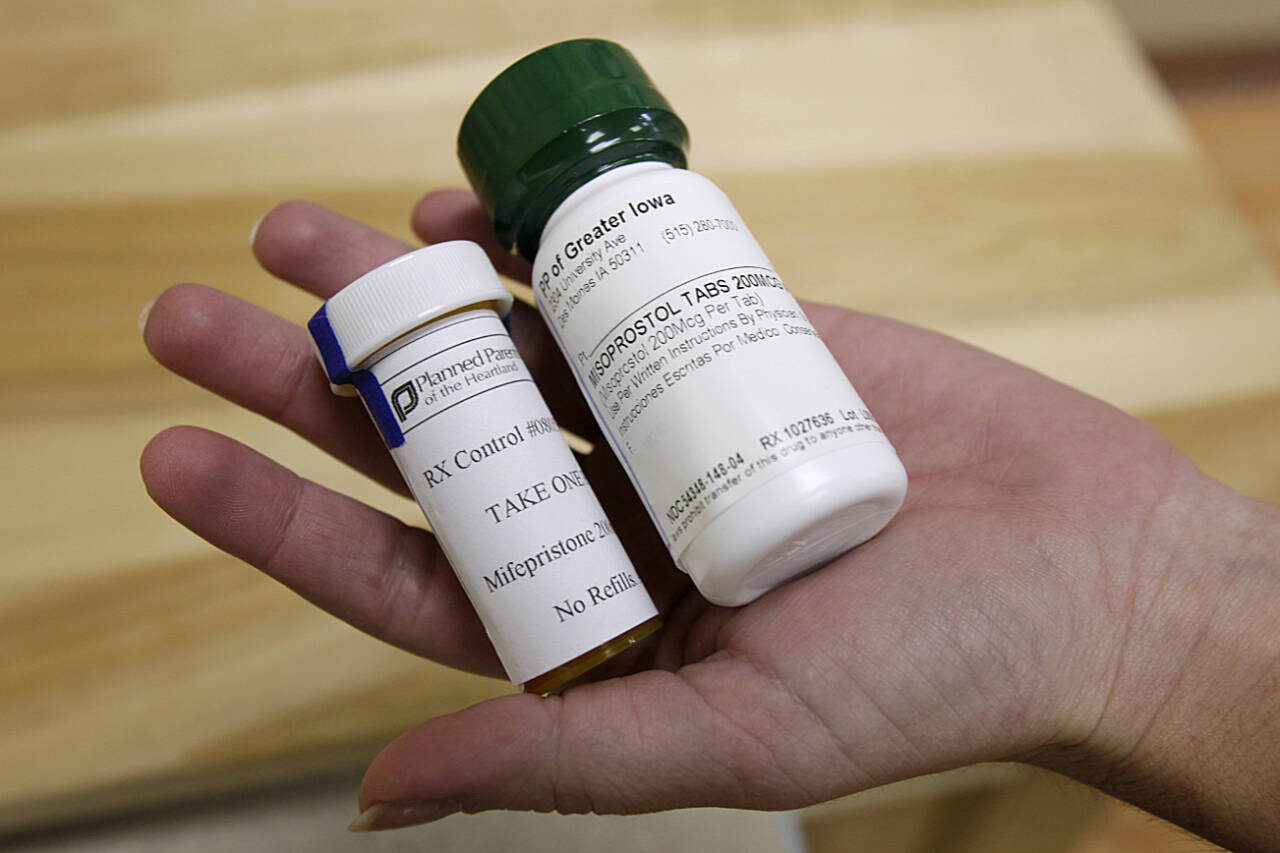By The Herald Editorial Board
Some advance thinking and preparation by Washington state officials ahead of a Texas federal judge’s ruling last week to ban a long-used prescription drug may preserve access to medication abortion for residents of Washington and other states.
Friday, U.S. District Court Judge Matthew Kacsmaryk blocked the U.S. Food and Drug Administration’s approval — which has been in place since 2000 — of the drug mifepristone, used in a two-pill regimen for safely ending pregnancies in the first 10 weeks of gestation. Kacsmaryk stayed his order for seven days, allowing the Department of Justice to file an appeal, which it did Monday.
That same day, a federal judge in Spokane, Thomas Rice, essentially ordered the FDA to do just the opposite, barring it from pulling mifepristone from the market in Washington state, as well as 16 other states and Washington, D.C., which had joined in a suit against the federal agency, claiming that some of its rules regarding the drug were unnecessarily restrictive. Rice’s ruling didn’t address the FDA’s restrictions, but effectively preserved the status quo for the states that had filed suit.
The conflicting rulings — and the Biden administration’s appeal — have placed the two rulings on a collision course — one in the 5th Circuit appellate court, the other in the 9th Circuit — toward the U.S. Supreme Court, which placed itself in this position less than a year ago by overturning Roe v. Wade with the Dobbs decision.
Recall that at the time, the Dobbs ruling came with the supposed assurance that the decision simply returned the abortion debate to the states; that laws regarding reproductive rights would be left to each state’s legislature and its voters to determine.
Kacsmaryk’s ruling in favor of an anti-abortion group’s suit to remove mifepristone from the market in all 50 states removes all doubt about the wider intent to ban all abortions nationwide and will flush out the court justices’ true standing on state’s rights.
Any doubts about continued federal protection for access to mifepristone — which is used in about 60 percent of abortions in Washington state as elsewhere in the U.S. — must have been on the minds of state Attorney General Bob Ferguson, who is leading the case in the Spokane court, and of Gov. Jay Inslee, who prior to Friday’s rulings made his own move to protect access to mifepristone, authorizing the purchase of 30,000 doses for $1.275 million, essentially a three-year supply for the state; the University of Washington joined in the stockpile effort, obtaining another 10,000 doses.
The novelty in the governor’s plan, outlined last week by The Herald’s Jerry Cornfield, has the state’s Department of Corrections — which runs its own pharmacy for those incarcerated in state facilities — make the purchase of the drug. But to distribute the drug the state Legislature must first change state law to allow the Department of Corrections to act as a pharmacy for all state residents, at least for mifepristone.
Legislation that is being fast-tracked through the Senate and House (Senate Bill 5768) would authorize the state corrections agency to expand its pharmacy responsibilities and set up a program for distribution. The DOC would charge a $5 fee, above the drug’s list price, to cover the cost of secure storage and distribution.
Mifepristone’s continued access — after a record of more than 20 years of safe and effective use for delivery of abortion care in the first trimester, as well as a treatment for women following a miscarriage — should be a foregone conclusion before the U.S. Supreme Court. That it isn’t spells out why the governor’s extraordinary action and legislation are necessary, as are other bills that are under consideration in Olympia that would expand or strengthen access to abortion; among them one bill seeking to protect the privacy and foil the potential prosecution of those who come to Washington seeking an abortion from states that have severely restricted that access.
The legislation deserves bipartisan support in both chambers. Cornfield, in his report, noted that Republicans have emphasized throughout the session that they would not seek to limit access to abortions; an assurance that was made by numerous Republican lawmakers to The Herald Editorial Board prior to last fall’s elections, that they would continue to respect the will of voters, who in 1970 — with 56.5 percent approval — established a right to abortion, three years before the Supreme Court ruled in Roe v. Wade.
It’s now an open question whether the rights of states and their citizens to decide their own course on reproductive health care still matter to the U.S. Supreme Court. But state lawmakers should make it clear that it matters to them.
Talk to us
> Give us your news tips.
> Send us a letter to the editor.
> More Herald contact information.

























